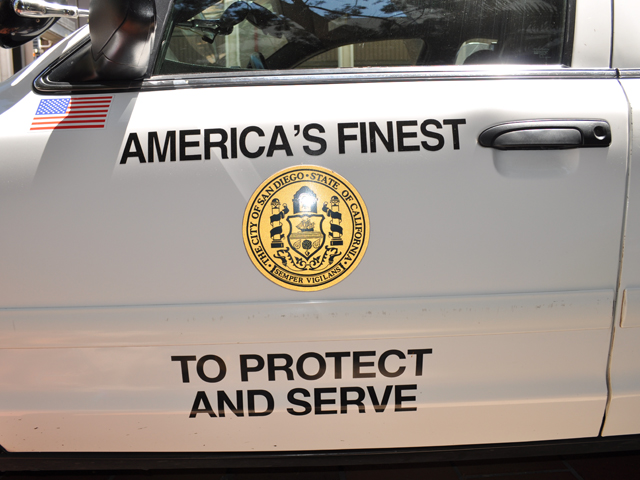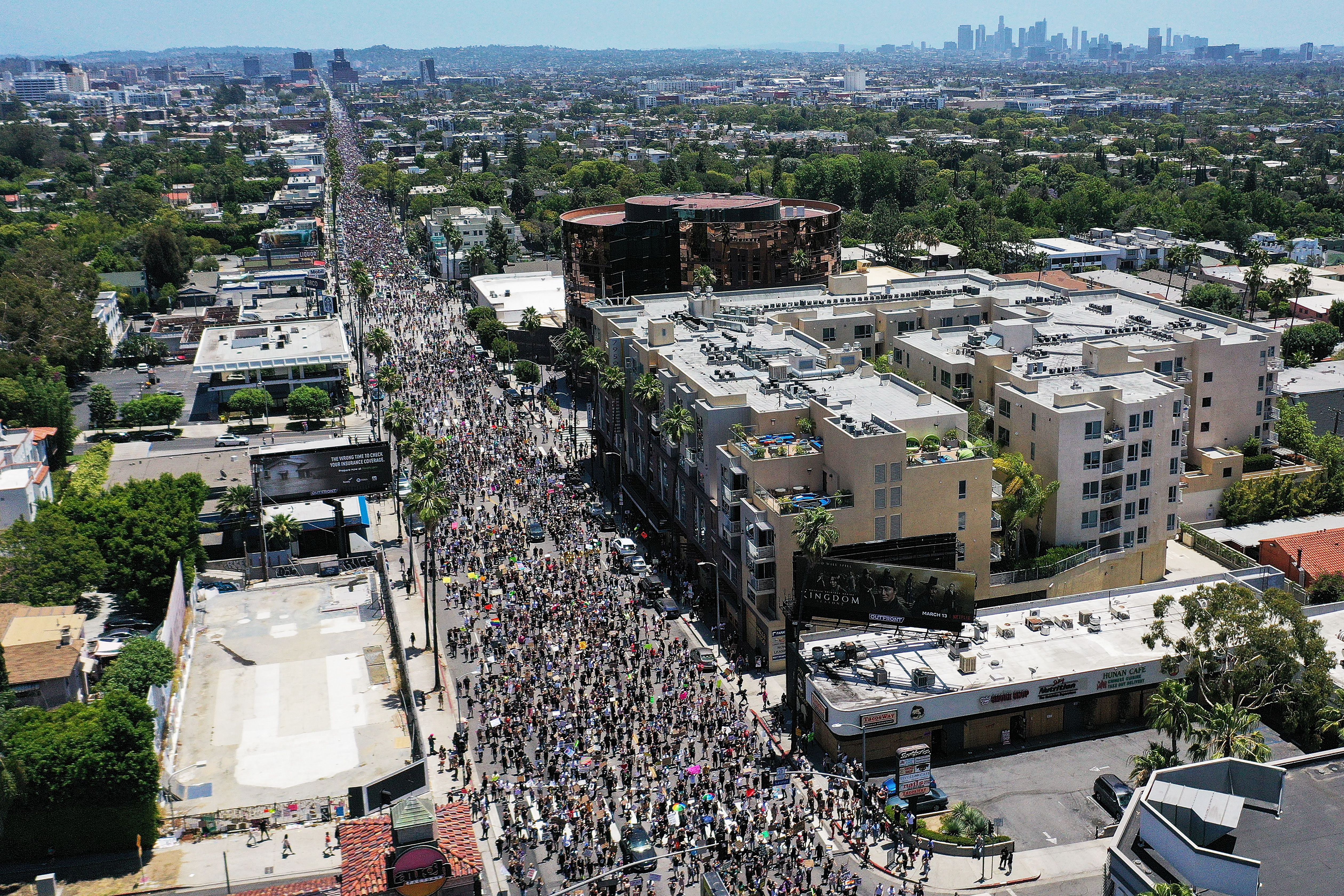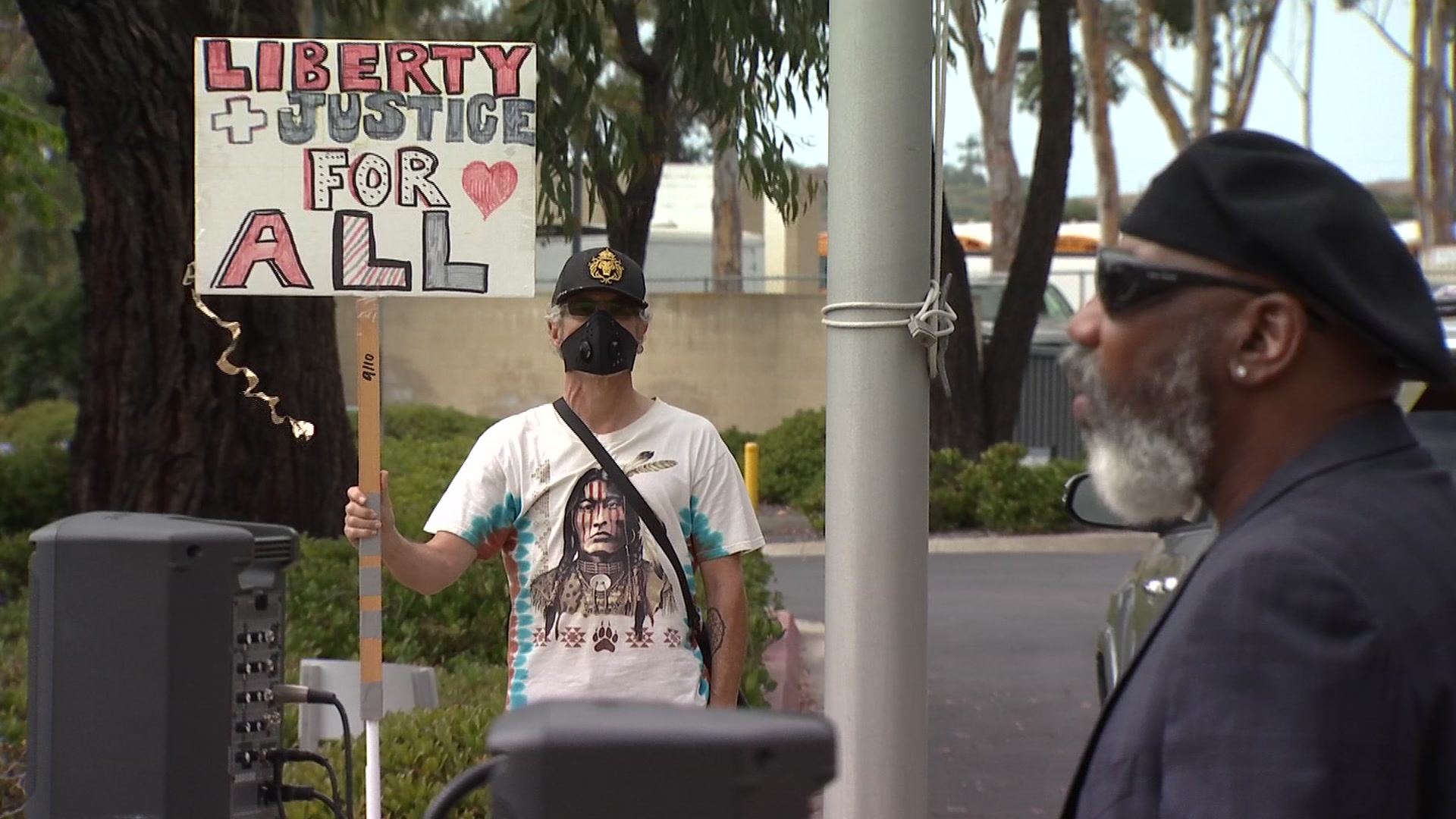As the San Diego City Council voted unanimously Tuesday to advance a ballot measure that would create an independent commission on police practices, county leaders continued to discuss three separate police reform proposals.
The discussions about law enforcement reform at both the San Diego city and county levels were reinvigorated by weeks of recent protests in wake of the killing of George Floyd, who died underneath the knee of a Minneapolis police officer.
San Diego City Council to Place Measure for Independent SDPD Review Board on 2020 Ballot
The San Diego City Council on Tuesday voted unanimously to declare their intent to put a police reform initiative, in the works for years, on the November 2020 ballot.
The measure would dissolve the existing Community Review Board on Police Practices (CRB) and create a new independent commission. The measure would need voter approval because it would amend the city charter.
Council President Georgette Gomez called it a "big step in the right direction toward real accountability and transparency."
Ahead of the vote, the council heard from dozens of citizens concerned with current police practices and who demanded reform of the CRB, which is tasked to review complaints raised against SDPD officers.
Before the measure is officially placed on the ballot -- following a council vote to be held July 7 -- the council will finalize details with the San Diego Police Officer's Association (SDPOA).
The independent commission on police practices would have subpoena power and an independent counsel. It would review any incident of excessive force that caused major bodily injury, anytime an officer fires their weapon or anytime an officer uses force at a protest.
Previously, all investigations had to start from a citizen's complaint and NBC 7 Investigates found that not all claims would be forwarded to the CRB.
"This commission makes sense — an independent oversight body should have its own legal counsel as well as subpoena power, the ability to hire independent investigators, and independence from the mayor’s office," Councilmember Barbara Bry said.
Advocates have been pushing for years for changes to the San Diego Police Department's CRB, established in 1988 as a way to relieve tensions in the city after the shooting death of a police officer by a young Black man in southeast San Diego.
SDPD Oversight
NBC 7's past coverage of SDPD's Community Review Board.
The committee, made up of 23 mayor-appointed volunteers, has been criticized in recent years as being an arm of the department as questions were raised for what appeared to be conflicts of interest, according to reporting by NBC 7 Investigates.
In response, Women Occupy San Diego in 2016 proposed the ballot measure for more oversight of the police department, which was approved with an 83% vote. But NBC 7 Investigates learned not all of those voter-approved changes were in place and the same group began pushing for an independent review board instead.
The current ballot proposal asking for an independent oversight committee was then introduced by Women's Occupy San Diego in 2018. After the city council's vote on Tuesday, it will likely go before voters in November.
Earlier this month, Mayor Kevin Faulconer and SDPD Chief David Nisleit said they are working on a deescalation plan as a result of public outcry for policy changes.
County and city leaders have also discussed the idea of establishing offices of equity and racial justice that would help work with underserved communities to help set city and county department priorities and budgets.
San Diego County Board Considers 3 Measures for Law Enforcement Reform
The San Diego County Board of Supervisors voted to approve three proposals Tuesday Supervisor Nathan Fletcher penned to strengthen law enforcement oversight, combat racial inequity and limit deputies' response to non-violent calls.
Each of Fletcher’s proposals was voted individually as opposed to as part of a package. All three were approved unanimously.
One proposal aims to give the Citizen’s Law Enforcement Review Board (CLERB), which oversees the San Diego County Sheriff's Department (SDSO), more independence and expand their authority to take on claims of misconduct, including use of weapon and use of force claims involving deputies.
Police Reform Discussions
How the country and local residents are responding to the discussion.
Fletcher’s second proposal creates an Equity and Racial Justice office to involve communities of color in setting budget priorities and policies.
Some community members calling for reform criticized the second proposal for not going far enough, questioning how much money would be spent on the office and who would be hired to be on the board.
As for the third policy, it would redirect calls regarding mental health wellness and homelessness from law enforcement officers to a dedicated team of clinicians who have a background in treating such cases, called Mobile Crisis Response Teams.
While Supervisor Kristen Gaspar criticized Fletcher for repurposing a proposal that she had presented before and Supervisor Greg Cox was concerned about how much would be spent to create the mobile response teams, the proposal passed unanimously.
Fletcher detailed the proposals on Friday alongside prominent Black community leaders whose experiences helped shape the policies.
"Our community has been crying out for this change for decades and decades," he said. "What is new is an increased awareness of the problem. An increased focus on the need that it must be addressed now.”
However, there has been pushback on the supervisor’s proposals in the community.
Bishop Cornelius Bowser, a criminal justice activist, said, “We need to end the stops. The pretext stops, the racial profiling and unless there’s a report on that, or I should say a proposal plan on that, then we’re really missing the point.”





